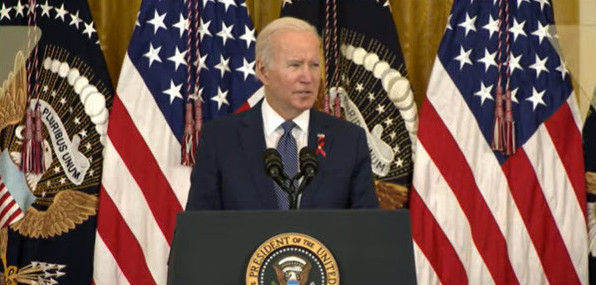The White House announced Wednesday President Biden’s National HIV/AIDS Strategy to end the HIV epidemic, which included a proposed budget of $670 million. The plan also called for cross-agency coordination across the executive branch.
Following a White House event commemorating World AIDS Day, Jesse Milan Jr., president and CEO of AIDS United, commented on the new strategy:
“We are excited to see President Biden’s commitment to ending the HIV epidemic. The plan is a huge step forward. This new vision is inspiring, and we look forward to working closely with the administration as it implements the plan.
“We are particularly grateful for the whole-of-government approach the strategy takes. It is the only way we can end this epidemic. Federal agencies must work to address both the virus itself, but also the social conditions that allow for HIV to continue to thrive in our communities. When thinking about the federal response to the HIV epidemic, some might not immediately think of agencies like Veterans Affairs, Labor, Education, Agriculture, or Housing and Urban Development, but each of these play a vital role. We’re very pleased to see the Biden administration include these agencies.
“Congress must play its role, too. It must act swiftly to approve the $670 million the president has called for on this project. The sooner Congress invests in this project, the sooner we will end the epidemic.
“We were very pleased to see the plan seeks to do more for sex workers, but it falls short by not naming sex workers as a priority population. This continues to leave the United States as the only major country not identifying sex workers as a priority population, despite the World Health Organization including them as a key population. A specific, direct focus on sex workers is necessary for ending the HIV epidemic.
“We also appreciate the increased emphasis on harm reduction and on people who use drugs. Congress must lift the ban on federal funding for syringe exchange materials. Syringe services programs are an indispensable part of ending the HIV epidemic. These programs are proven to promote safe practices when using drugs, prevent overdoses and repeated needle use, and connect people to HIV-related services.
“It is also important that we acknowledge the racist foundations the United States was built on that have affected every aspect of our medical and social systems. These discriminatory and stigmatizing structures and institutions prevent people of color living with and vulnerable to HIV from accessing quality, trauma-informed care. But these inequities go far deeper than access to care. These inequities demand that we evaluate and correct the social determinants of health that lead to these inequities — food deserts and affordable housing, education and broadband access, and of course health insurance and jobs.
“AIDS United’s mission is to end the HIV epidemic in the United States through strategic grant-making, capacity building and advocacy work. We are hopeful that this administration’s new strategy, alongside our continued work to provide these resources for people living with and vulnerable to HIV, will take us over the finish line to ending the epidemic by the end of this decade.”








Comments
Comments